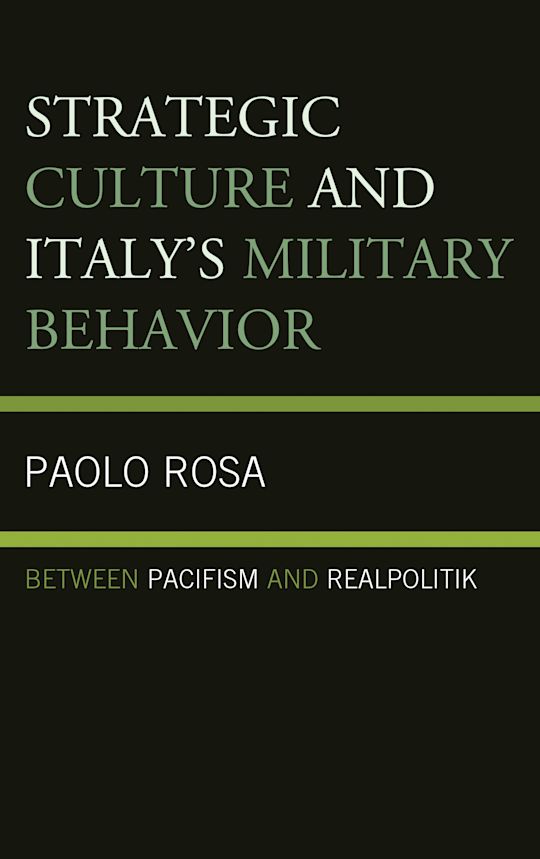- Home
- ACADEMIC
- Politics & International Relations
- Introduction to International Relations
- Strategic Culture and Italy's Military Behavior
Strategic Culture and Italy's Military Behavior
Between Pacifism and Realpolitik
Strategic Culture and Italy's Military Behavior
Between Pacifism and Realpolitik
You must sign in to add this item to your wishlist. Please sign in or create an account
Description
Italy, although it considers itself to be a middle-sized power on par with France, the United Kingdom, and Germany, has been incapable of playing an international role comparable to theirs, instead keeping a low-profile foreign policy. This has not been due to any material constraints—Italy’s profile has remained consistently low, through economic times both good and bad—but rather to the country’s strategic culture, a mixture of realpolitik and pacifist tendencies. This book sets out to analyze the influence of Italy’s strategic culture on its foreign policy. It conducts an exploratory case study to show if hypotheses generated by the strategic culture approach can shed some light on the puzzling Italian behavior in the international arena (puzzling because Italy shows a less assertive foreign policy vis-à-vis other middle powers in the same rank). The first chapter considers the main interpretations of Italian foreign policy and their limitations. The second and third chapters review the literature on strategic culture, stressing its utility for the Italian case. The fourth chapter describes the country’s strategic culture through the Liberal, Fascist, and Republican periods, and the fifth chapter analyzes the influence of ideational factors on Italy’s behavior abroad. Conclusions sum up the various emerging evidences. Scholars of political science, international relations, strategic studies, and comparative politics will find this work to be of interest.
Table of Contents
Part I. The Study of Strategic Culture in International Relations
Chapter 2. The Sociological Turn in International Relations
Chapter 3. The Study of Strategic Cultures
Part II. Italy’s Strategic Culture and Foreign Policy
Chapter 4. Italy’s Strategic Culture
Chapter 5. Italy’s Strategic Culture and International Behavior
Chapter 6. Conclusions
Product details
| Published | Apr 21 2016 |
|---|---|
| Format | Ebook (PDF) |
| Edition | 1st |
| Extent | 158 |
| ISBN | 9798216302391 |
| Imprint | Lexington Books |
| Illustrations | 13 BW Illustrations, 7 Tables |
| Publisher | Bloomsbury Publishing |
About the contributors
Reviews
-
Italy’s role as an almost classic middle power in international politics has for too long been neglected by scholars of European foreign policy. This scholarly study now fills that gap. A most welcome—and long overdue—addition to the literature.
Michael Cox, Professor and Director, LSE IDEAS
-
Rosa’s book provides the first systematic and in-depth examination of the evolution of Italian strategic culture in the Post-World War II period from realpolitik to accommodationist, a process due primarily to the unholy convergence of the Catholic and Communist sub-cultures. Besides providing a strong explanation for the continuity in Italian foreign policy, the book also underlines the serious limitations that such strategic culture represents to Italy’s aspirations to play a central role in the provision of collective security in the Mediterranean. For this reason, it should be required reading not only for all scholars of the Atlantic Alliance, but also for Western, and above all, Italian, policy-makers.
Osvaldo Croci, Memorial University



































